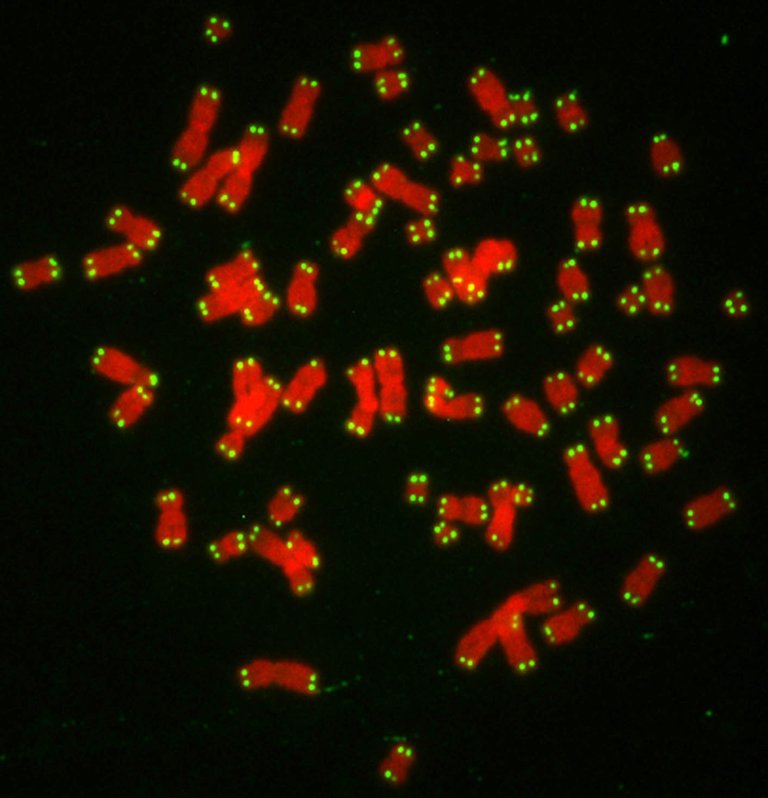Mice manage to lengthen their life through gene therapy

Researchers from the Centro Nacional de Investigaciones Oncológicas (CNIO) in Madrid have managed to extend the life of mice through gene therapy. The introduction of the telomerase enzyme gene in the adult mice of one year and the old ones of two years increased the life of mice by 24% and 13%, respectively, and improved the health of mice by delaying the appearance of diseases related to aging. The results have been published in the journal EMBO Molecular Medicine.
Telomerase creates, repairs, and protects structures called telomeros located at the ends of chromosomes. And telomeres in turn protect chromosomes from degradation. However, in each cell division, telomeres are shortened until, after several divisions, they are shortened too much to fulfill their function well. As a result, damage to DNA and the aging and death of cells begin to accumulate. Telomeras prevents it, but the telomerasia gene does not remain active after birth.
Thus, trials have been conducted to develop rejuvenation therapies, promoting the expression of telomerosis. However, they have found a great drawback: the risk of producing tumors. In fact, telomerosis activity has a lot to do with the immortality of cancer cells. In this case, mice have not had cancer. The researchers attribute this fact to the application of therapy in adult mice and, therefore, to the lack of time to accumulate defects in cell divisions. In fact, in the sessions that have been carried out so far, genes have been transformed into an embryo phase.
Although, in the short term, it is not expected to be used in humans to cope with old age, researchers have indicated that it can be a way to treat diseases related to excessively short telomeres. On the other hand, “old age is not considered a disease today, but researchers tend to understand it as a cause of various diseases,” says Maria A. Led by the research team Blasco. If we were to treat old age of cells, we would prevent these diseases.”
Buletina
Bidali zure helbide elektronikoa eta jaso asteroko buletina zure sarrera-ontzian











